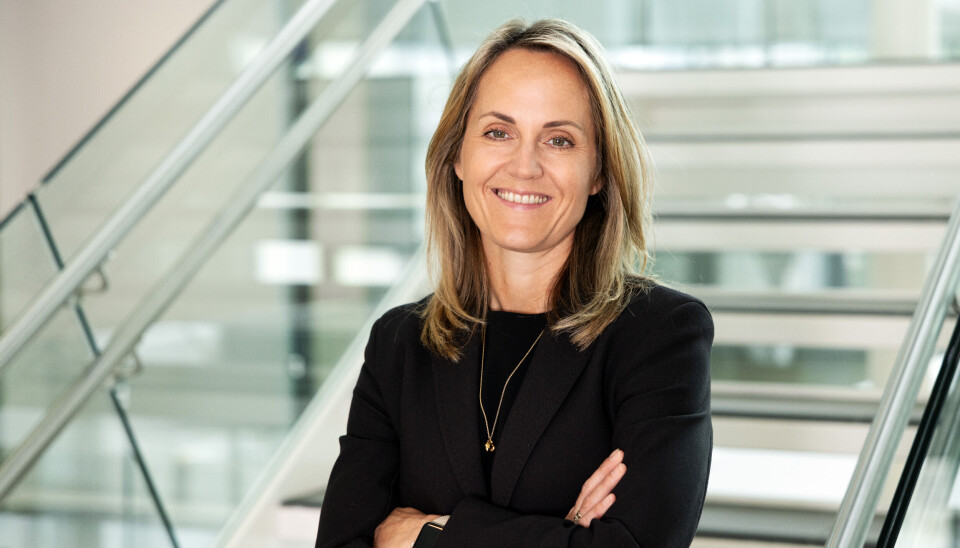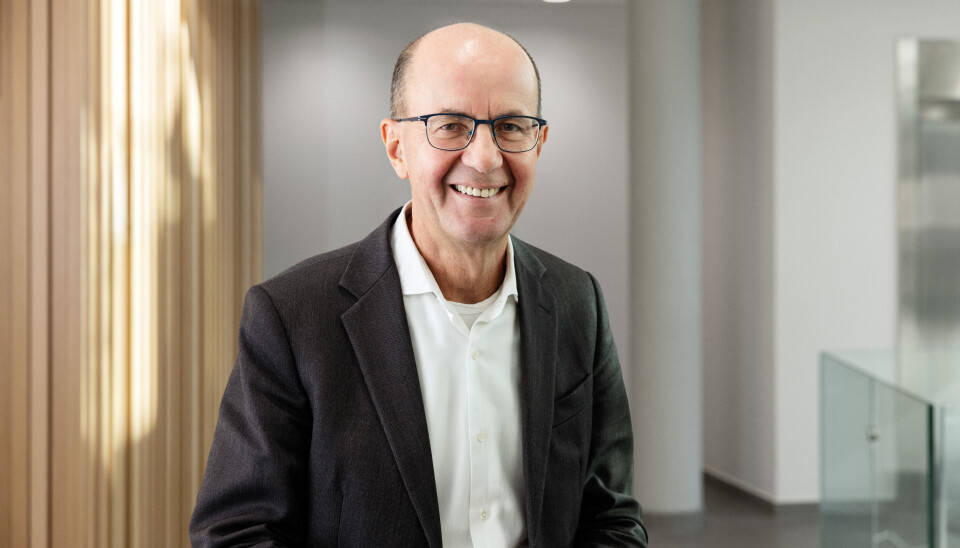
"Precision Matters"
“Built on trust” is more than just a slogan for VARD. For the Sunnmøre-based company, it’s part of a key industrial advantage.
“We’re part of a global market where we compete with China and other low-cost countries. That means we have to deliver in other areas – such as innovation and quality, but of course also on delivery precision,” says CEO Cathrine Marti.
But how is that achieved? The margins between success and failure in this industry can be razor-thin. Elements far beyond the company’s control can delay one project, which in turn pushes back the next.
Marti believes that VARD has, over several years, built a well-functioning system where people communicate openly and challenges are brought to light.
But one element is decisive:
“We control the entire value chain. Many of the components that go into the vessel are produced within the group. Of course, we still purchase a great deal from subcontractors – but we choose those we know deliver and who we can rely on.”
VARD has nearly everything needed for a vessel in-house: electrical systems, interior outfitting, design, hull yards, cranes and bridge solutions, to name a few.
“For us, that’s incredibly important because it gives us control over the components. It also makes it easier to allocate extra resources if we start falling behind. That way, we can ensure things happen in the correct order.”
Many of the subcontractors are also located nearby. The maritime cluster in Sunnmøre is world-class and known for its ability to collaborate when needed.
“The availability of skilled, solid suppliers in the cluster means a great deal,” says Marti.
Flexibility
The CEO does not hide the fact that things don’t always go according to plan. But on the Prysmian Monna Lisa project, that was not an issue – quite the opposite.
The tight delivery schedule was demanding, but they succeeded.
“There are so many pieces that have to fit together. But in the end, it’s about people working well together, talking to each other, and communicating.”
The project began in Norway with engineering, before the hull was built in Romania. There, large parts of the interior and electrical systems were installed before the hull was towed to Søviknes for final outfitting.
Another advantage of VARD’s three shipyards – located relatively close to one another – is the flexibility to move resources between sites when activity peaks. They can also bring in personnel from Romania, or send resources the other way when needed.
The ongoing challenge, as it has been for many years, is securing enough qualified personnel – both in Norway and Romania.
“Recruitment is essential for permanent hires. In addition, we must find good staffing companies that ensure continuity. What’s most important for us is that our operations remain stable, so that we have people on site consistently. If workers are constantly in and out of the gates, they leave for other places – and then it’s hard to get them back.”
In collaboration with training institutions, the Norwegian Labour and Welfare Administration (NAV) and other organisations, the company actively works to recruit – not only young people, but also adults who may need retraining. This autumn, the group brought in around 60 apprentices, something Marti describes as extremely important.
“We need to help them see how exciting this industry really is. The great thing is that when you work in small communities, like the ones surrounding our yards, it often goes in generations. The local society is built around the industry, and people want to work in it. But the way we work today is not how we will work in the future. Skilled workers are becoming more specialised, and the work is more interesting for younger people. New tools and new working methods are emerging.”
Marti emphasises the importance of adaptability in attracting younger talent. At the same time, the skills of experienced shipbuilders must be passed on to the next generation.
Long term owner
VARD has faced economic challenges for many years. Considerable effort has gone into turning things around – and it has paid off.
The year 2024 was financially positive, but this would not have been possible without the support of their Italian owner, Fincantieri.
“It’s been incredibly important that they have a long-term and industrial perspective on our sector. We now have an orderbook worth more than NOK 40 billion. Our yard in Vietnam is fully booked through 2027, with contracts extending into 2028. At the same time, our yards in Norway and Romania also have contracts well into 2027. Still, we must continue to secure new orders.”
Marti admits that the current market is challenging, and that decisions take longer than they used to.
“All we can do is keep working and find good solutions together with the clients who need vessels.”
Discussions are currently underway regarding who will build the new naval vessels for the Norwegian Armed Forces, and where. In addition to five, possibly six, large frigates, 28 standardised vessels in various sizes are planned. The only certainty seems to be that the 28 will be built in Norway. At the same time, VARD is part of the American solution for the new frigates. Should Norwegian authorities choose the Constellation class, they would be built at one of VARD’s shipyards.
“This would clearly be a tremendous opportunity for us. Through the Fincantieri Group and Fincantieri Marine Group in the USA, which is building the Constellation class, we have access to the expertise and network that could make it happen.”
VARD has previously built for the Norwegian Armed Forces – most recently the new Coast Guard vessels KV Bjørnøya, KV Jan Mayen, and KV Hopen.
“We have a shipyard that is set up for this type of work. When building such vessels, parts of the workforce need to be security cleared. Building frigates is of course a different scale, but we have experience through our cooperation with our parent company – and we are confident we can handle it,” says Marti.

“The prize is hugely important”
It has been ten years since VARD last won Ship of the Year – in 2015 with Skandi Africa.
“This award underscores VARD’s leading role as a global shipbuilder and highlights the strong collaboration between the VARD Group, Fincantieri Group and Prysmian. Prysmian Monna Lisa is the second of three vessels that VARD is building for the company. This award would not have been possible without the strength and long-term commitment of the partnership,” says Chairman of VARD Group, Alberto Maestrini.
Marti is both proud and pleased that they can once again claim the title.
“The prize is hugely important and means a great deal to us. Above all, the credit goes to all our employees who put in long hours every day to stay ahead. The award is a recognition of all that hard work. We are known for our innovation and forward-thinking approach – it’s part of our brand, and it’s of course very rewarding to receive recognition for it.”